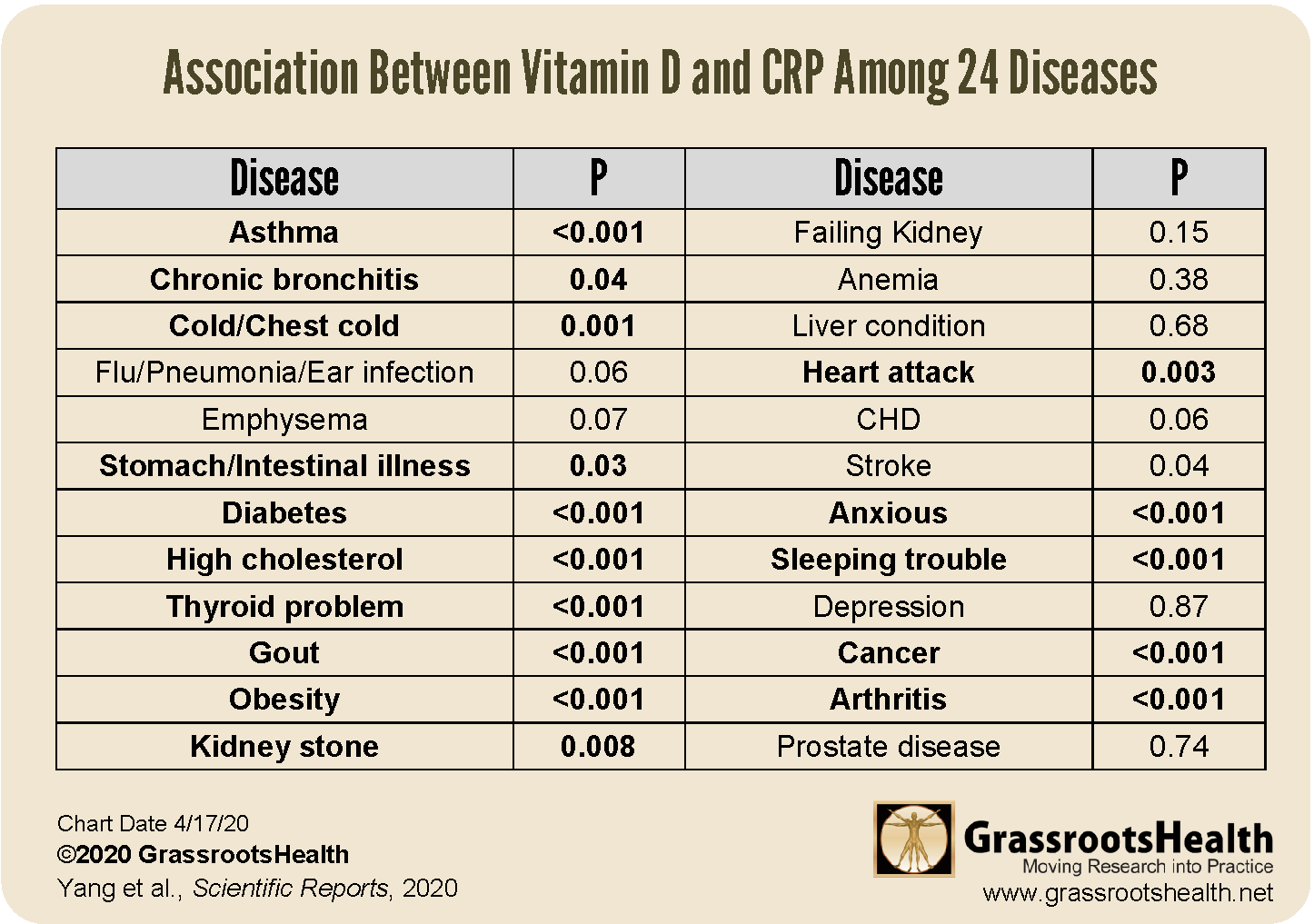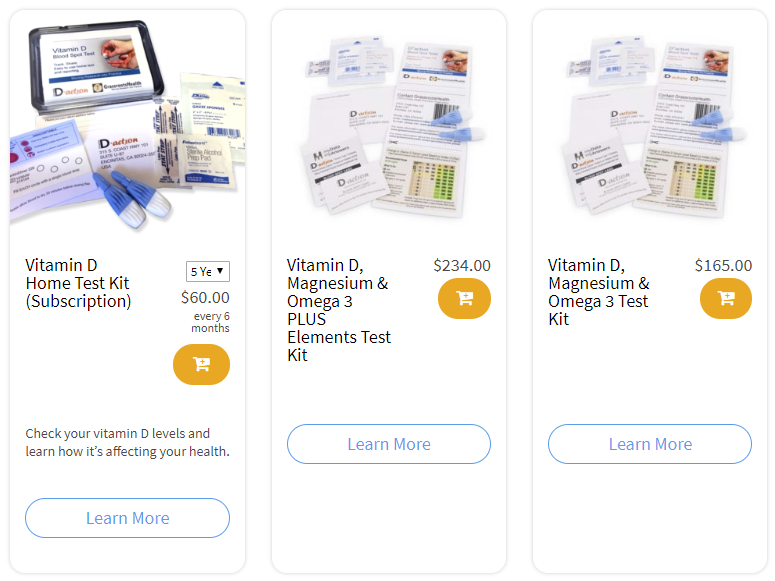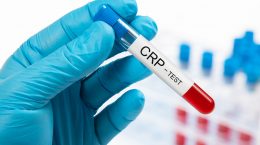Published on April 23, 2020
Inflammation is a known contributing factor to many diseases and is often measured by C-reactive protein (CRP), one of the best markers of inflammation, especially for inflammation caused by bacterial infection or tissue damage. Vitamin D is also known to be associated with several of diseases, with higher levels associated with lower disease risk. Studies have also associated vitamin D with lower levels of inflammation and CRP, such as in cardiovascular disease, psychiatric disorders, and diabetes.
A Close Look at CRP and Vitamin D in 24 Different Diseases
 Recently published results from a study by Yang et al. highlighted the relationship between CRP and vitamin D levels in 24 different diseases. Data from 9,809 adult subjects who had participated in the U.S. National Health and Nutrition Examination Survey (NHANES) between in 2007 and 2010 was collected and analyzed. Upon analysis, they discovered a negative association between CRP and vitamin D levels overall, with higher levels of vitamin D associated with lower levels of CRP. The strength of associations varied among diseases.
Recently published results from a study by Yang et al. highlighted the relationship between CRP and vitamin D levels in 24 different diseases. Data from 9,809 adult subjects who had participated in the U.S. National Health and Nutrition Examination Survey (NHANES) between in 2007 and 2010 was collected and analyzed. Upon analysis, they discovered a negative association between CRP and vitamin D levels overall, with higher levels of vitamin D associated with lower levels of CRP. The strength of associations varied among diseases.
The following were seen:
- CRP and vitamin D associations were generally linear among respiratory, gastrointestinal, and mental diseases, meaning that as vitamin D levels increased, there was a steady and continuous decrease in CRP levels- CRP and vitamin D associations were stronger in mental diseases
- CRP and vitamin D showed a non-linear association among metabolic diseases such as diabetes and cancer, meaning the effect of vitamin D on CRP levels was greater at lower levels but slowed at higher levels of vitamin D, with an eventual plateau
- Cancer had a higher cut-off value of vitamin D than other diseases, meaning that after other diseases reached a plateau with vitamin D cancer still showed a reduced risk from higher levels
- CRP and vitamin D also demonstrated a negative relationship in cardiovascular and cerebrovascular diseases
- The relationship between CRP and vitamin D levels were statistically significant for the majority of diseases; the authors concluded that nonsignificant associations may have been due to too few people with those diseases
The table below further outlines the association between CRP and Vitamin D among the 24 different diseases. Diseases in bold are those that had a statistically significant relationship between vitamin D and CRP levels.
Could You or Someone You Know Need More Vitamin D?
We’re in a time of great crisis that could be greatly affected by making sure you and everyone you know has a serum level of at least 40 ng/ml. Help us help you.
Do you know what your vitamin D level is? Be sure to test today to find out, and take steps to keep it within a target of 40-60 ng/ml or 100-150 nmol/L! Give your immune system the nutrients it needs to support a healthy you and protect yourself from unnecessary diseases.
Make sure you know your vitamin D level, and take steps to keep it within a target of 40-60 ng/ml or 100-150 nmol/L! Through GrassrootsHealth Nutrient Research Institute, you can also test your essential elements magnesium, copper, zinc and selenium, toxins such as lead, mercury and cadmium, as well as your omega-3 levels, inflammation levels and thyroid stimulating hormone (TSH) level. Find out your levels today! Log on to the test selection page (click the link below) to get your tests and see for yourself if your levels can be improved. Make sure you track your results before and after, about every 6 months!
Click Here to Access the Test Page
How can I track my nutrient intake and levels over time?
To help you track your supplement use and nutrient levels, GrassrootsHealth has created the Personal Health Nutrient Decision System called
For each specific supplement, you can track what days you take it, how much, and many other details. This will help you know your true supplemental intake and what patterns of use work for you to reach and maintain optimum nutrient levels. Check it out today!










